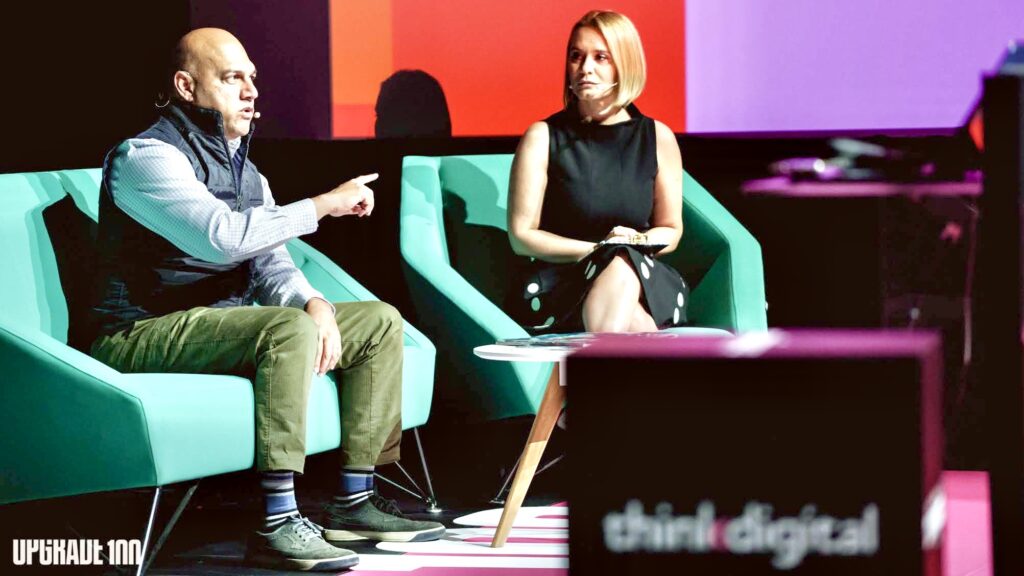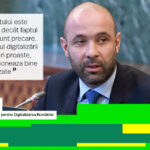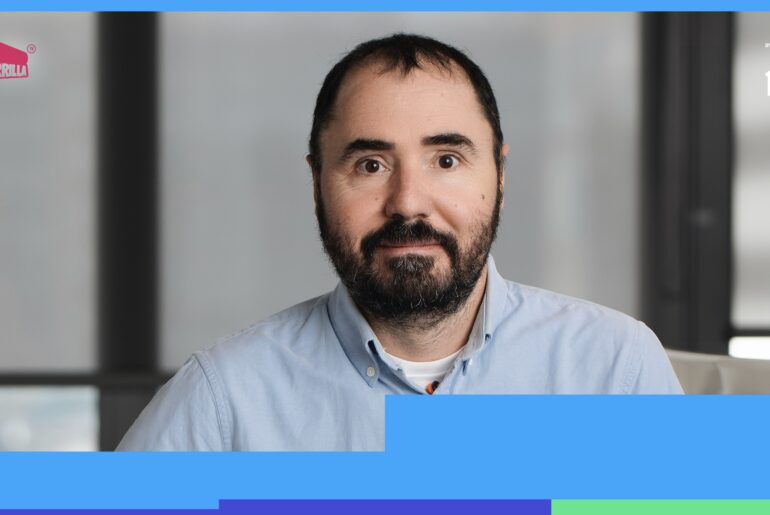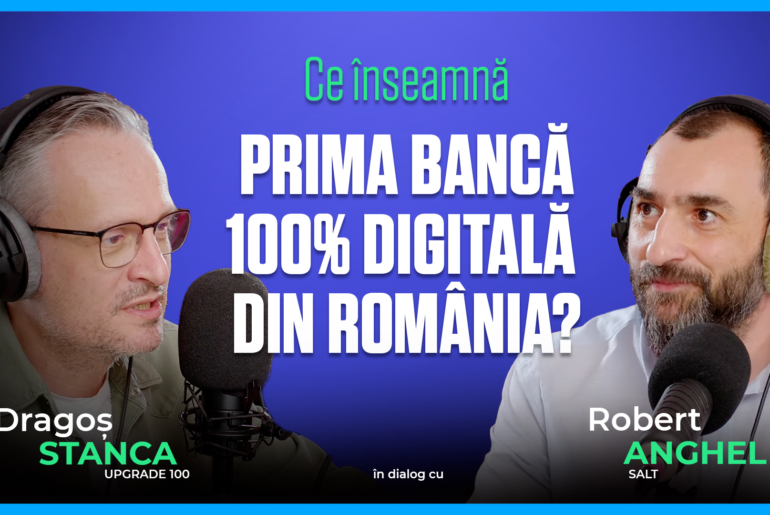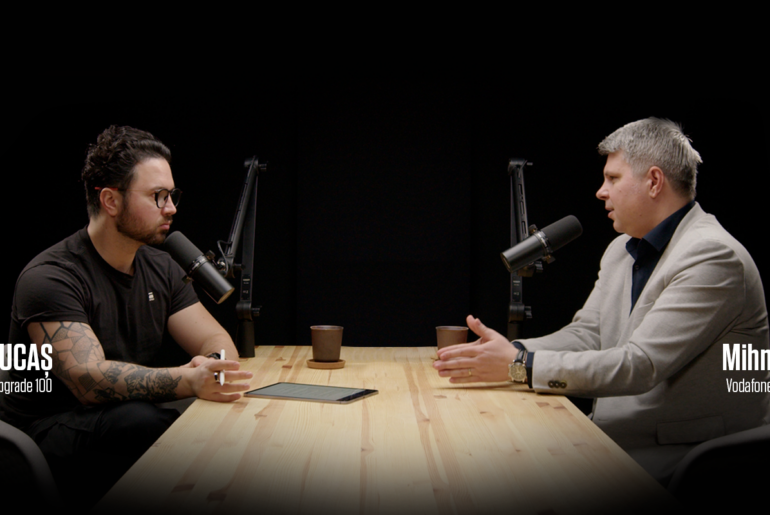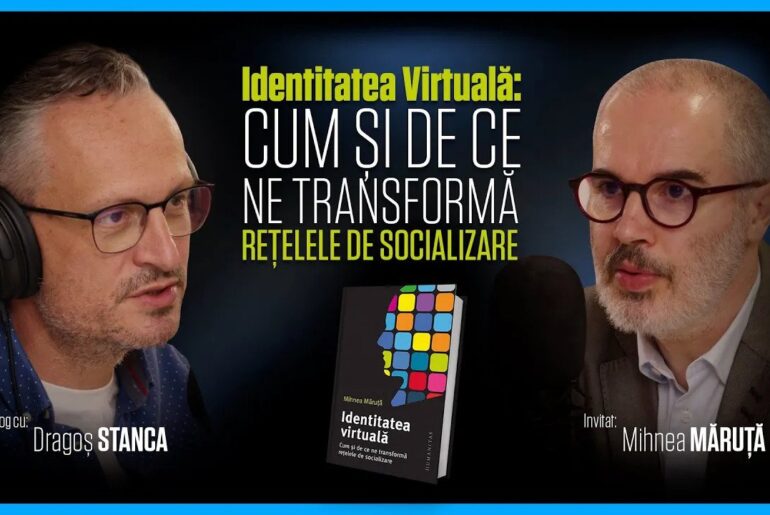EXCLUSIVE 10 months ago, the world famous futurist and one of the founders of “Singularity University” Salim Ismail was talking to the UPGRADE 100 Festival’s audience about exponential growth, about disruption, about how technology and innovation would change the world for the better.
- Here’s the full speech from June, 2019 –> available for FREE in our new U100 Virtual Festival.
And here we are, today: everyone knows now what exponential growth actually is. Everybody is experiencing the effects of disruption and noticing how the world has suddenly, not necessarily exponentially, changed. Not in a good way.
The immune system resistant to innovation and change, which Mr. Ismail often refers to, seems like is not very strong enough. And our current state of affairs is – deep crisis. This time, not a crazy entrepreneur or innovative company but a virus caused the change.
So, in this week’s exclusive interview and podcast I decided to check with Salim what’s still valid from his predictions and what’s his opinion regarding the future.
„This is a complete reset of the global economy”
-
My first question for this special UPGRADE 100 Live & Podcast episode is: how many of the trends we’ve heard of back in June are still valid?
Salim Ismail: This COVID-19 crisis is like a black hole: we literally don’t have any idea what happens on the other side. The smartest guy I know on the macro-economic side of things thinks that instead of 85 trillion of global GDP, this year we’ll have 20 trillion global GDP. So this is essentially a complete reset of the global economy.
[Our note: the global GDP was 20 trillion USD… in the early ’90. More data, here]
„I’m one of the founders of „Singularity University” and the Coronavirus pandemic is a singularity: every model about the future breaks down”
-
What you think is the positive impact of Corvid 19 pandemic, if there is any?
Salim Ismail: I think there are huge positives, you know, for better or for worse, the whole world now understands exponentially. Unfortunately, the use case is negative.
And you can see from the reaction of various countries, which leaders see exponentially and which leaders don’t see exponentially as, you know, hm… the USA. And so you have now a kind of a clear sense of how the world should work.
I think what the magic in this is that we are all connecting with our families and our loved ones in a completely incredible, deep way.
For the first time in human history, we have one common enemy. This virus is literally trying to kill millions of people. And there’s a uniting capability around that.
The second massive positive is that this breaks all of our old models and therefore we can come back to something new.
-
So, in your optimistic view, do you think we will learn something good out of this crazy situation?
Salim Ismail: I’m not sure. I think something positive can come out. And rather than wait for what might happen, we should be following the advice of Alan Kay, who said: „The best way of predicting the future is to invent it yourself”
I would like to work with communities like UPGRADE 100, around the world, to upgrade humanity to a „Star Trek” future, not a „Mad Max” path
-
It’s a very complex situation because on the one hand, this virus proved that we are all equal, regardless of borders, of skin color, of nationality, and it should have united us. But there’s a paradox since this happened only at a micro-level. Families are coming together, friends are coming together but looks like we are separated more than ever, as nations. Do you agree? Do you think that the world, as a whole, needs to learn something out of this?
Salim Ismail: Yes. Hugely. You know, we’ve spent several hundred years with capitalism connecting ourselves into a global, interconnected global economy but we’re still operating from tribal paradigms: it’s us versus them. Everybody’s trying to push to protectionism. We have a major problem now with global leadership that is not really leading.
„I think Coronavirus gives us an opportunity to recraft our global institutions in a connected and collective way”
-
Do you think health will be something equally important in our future like army or religion is today? Are we mature enough as humanity to admit that we need something like that?
Salim Ismail: Well, I’m not sure. There are chunks of the population that are very, very mature and chunks of the population that are very, very immature. You know, just watch „Tiger King” on Netflix and you’ll see some of the worst instances of humanity. In some cases.
But we have now some really positive things that can come out. And I think we can operate now with a global awareness of who we are as a species and move forward on that basis.
Hope for the best, but plan for the worst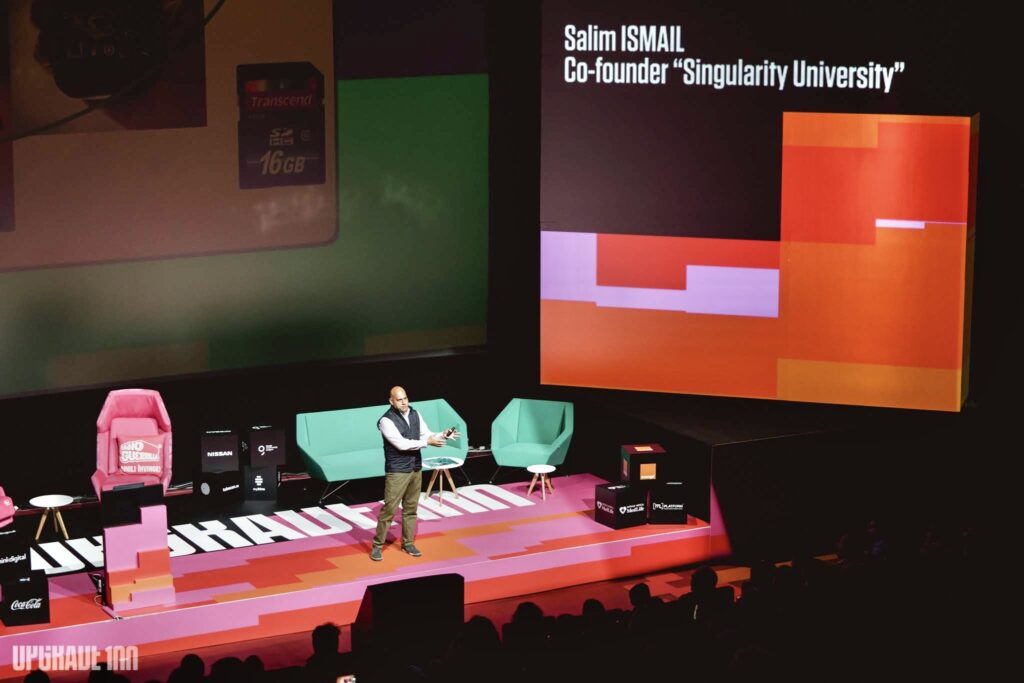
-
Coming to the business side of things, what would be the main priorities, in your opinion, for any company affected by the current economic crisis?
Salim Ismail: One is – find business models that work. And, you know, if the business model is changed from making donuts to making coronavirus masks, do it, you know, just find a way of helping your business survive.
Secondly, people have to assume that the economy is not coming back anytime soon. You have to assume for the worst case plan. I hope for the best, but plan for the worst.
-
What kind of companies will suffer the most? Big ones, small ones? What kinds of companies will get stronger during the pandemic?
Salim Ismail: Obviously some of the online delivery capabilities. Amazon obviously does very well from something like this. BestBuy is doing an amazing job of saying if you want something, come drive by the store, stop, we’ll bring everything to your car, in a clean box and then off you go. And so they’re innovating very quickly up along the edges of this.
I think the hard hit ones will be small people, based businesses like hair salons and restaurants and bars and movie theaters.
Some of the big companies may survive because they have the cash or the lasting power. But I don’t think this is going to help them that much in the longer term. But I’m very worried about a lot of the small businesses.
-
I think we are close to bigger risks. Like traditional currencies to collapse, maybe?
Salim Ismail: We will spend about 15 or 20 trillion dollars trying to fight this thing which will deflate our global economy. Our currency is quite a bit and we will have a massive inflation, hyperinflation in some cases.
I think some time at some point, some countries will basically jump out of the hyperinflation and say, we’re going to peg our currency to Bitcoin. 12 years in a row, nobody has hacked Bitcoin. So it’s just as a store of value. I think it’s very powerful.
-
Do you think there are any industries that will be most affected?
Salim Ismail: I think everything related to consumer consumption gets badly disrupted.
By the way, you remember I said at UPGRADE 100, sometime in the next 2 years, we will have a global shock and the oil prices will collapse and they will never come back again? It’s happening right now! I don’t think it will come back from this.
I also think the car industry collapses because people will learn not to use cars. And it takes a long time to recover.
If you suddenly lose a leg, it takes a long time to recover from losing. That leg of the global connected supply chain is going to take a long time to recover from this incredible shock.
-
How do you think technology can help accelerate the recovery of the post-crisis economy?
Salim Ismail: I’m a strong optimist around technology, as you know. I think it’s a major driver of progress in the world and it might be the only major driver of progress in the world.
But I think people have been misusing technology. We extract resources out of the earth without taking the full cost of it into account. We keep old people alive with tubes when they don’t want to be alive. And we have a lot of systems and structures that are very archaic and out of date.
This is a magical opportunity to reinvent everything. I think we should take that opportunity and start from the beginning.
It goes right back to Plato and Aristotle, Aristotle, when they said: „How should we conduct ourselves?”. And I think we should ask that question again and start from the beginning.
-
What is your biggest hope and your biggest fear in this new global context?
Salim Ismail: My biggest hope is that we’ll use this opportunity to transform how we operate as a human species.
We have, for the first time in a long time, one enemy attacking the entire human species and killing, you know, a huge, huge, huge number. So this is a very, very unique moment.
Not that it wasn’t predicted, because we know this has been coming. We’ve known for a long time that this was going to happen. And now that it’s here, my biggest fear is that we try and go back to where we were.
I have a call to all of your viewers and readers and attendees of UPGRADE 100:
I think the name of your event, UPGRADE, is a really important point: this is an opportunity to upgrade humanity.
We have two paths in front of us: we either have a „Mad Max” future or a „Star Trek” future. And right now, we’re clearly headed down a „Mad Max” path.
And I would like to work with communities like yours, around the world, to upgrade humanity to a „Star Trek” future, not a „Mad Max” path.
-
Ok, deal. Let’s do this!
You can listen the full UPGRADE 100 Live Podcast here:
REMINDER: Here’s the live-on-stage interview by Andreea Esca with Salim Ismail at UPGRADE 100 Festival:
Here’s a unique opportunity (scroll down to continue reading if not interested):
JOIN LAST-MINUTE A UNIQUE 3 DAYS LONG, LIFE-CHANGING DIGITAL CONFERENCE
You can join, upon a very small fee, the first digital conference organized by OpenExO – UPGRADE 100 is a proud regional partner. Here’s a special message for our community from Salim Ismail himself:
The Summit is organized in partnership with Singularity, XPrize, Rokk3r, Vortex, HighVibe Network, Abundance 360 and ExO Speakers.
Speakers include: Peter Diamandis, Salim Ismail, Vincente Fox, John Edge, Nicole Drieske, Jeff Booth, Thomas Ermacora, Chris Traub, Paul Pagnato, Brian Bacon, David Orban, Jason Silva, Daniel Kraft, Andrew Hessel, Nabyl Charania, Julie Hanna and many others.


